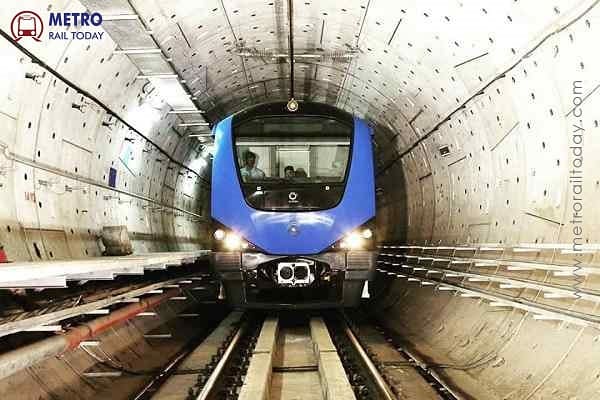 CMRL achieves second Tunnel Breakthrough at Thirumayilai for Chennai Metro Phase 2 Corridor 4
CMRL achieves second Tunnel Breakthrough at Thirumayilai for Chennai Metro Phase 2 Corridor 4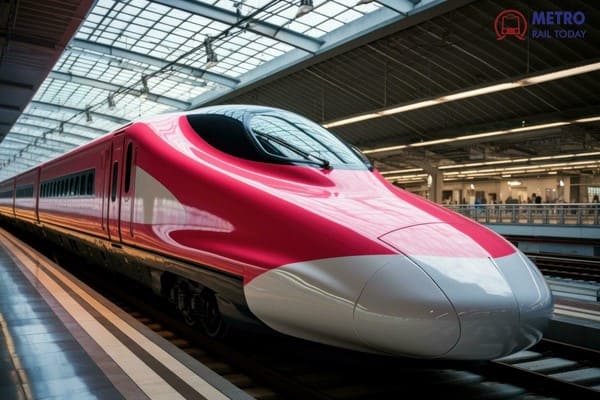 NHSRCL invites Single Tender from BEML for Bullet Train Rolling Stock Package
NHSRCL invites Single Tender from BEML for Bullet Train Rolling Stock Package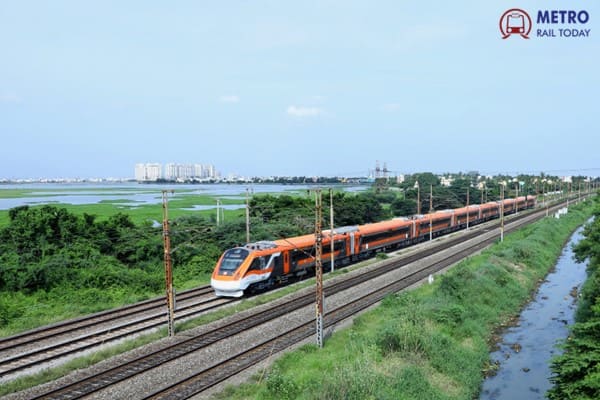 Railway Minister reviews progress of Ahmedabad–Dholera Semi High-Speed Rail Project
Railway Minister reviews progress of Ahmedabad–Dholera Semi High-Speed Rail Project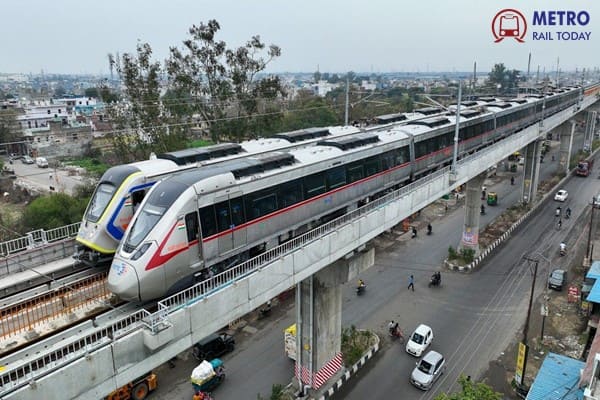 National Planning Group reviews key Rail & Metro projects under PM GatiShakti
National Planning Group reviews key Rail & Metro projects under PM GatiShakti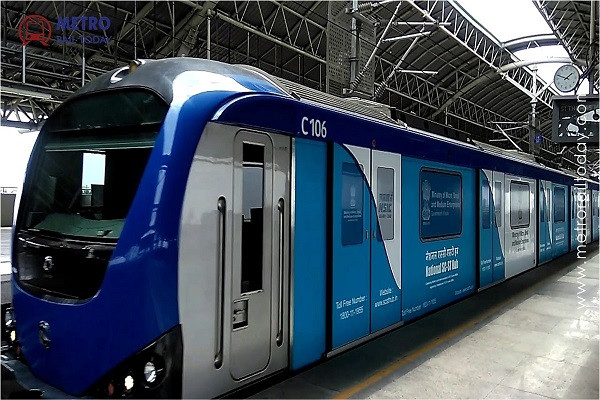 CMRS approves Driverless Metro Operations on first stretch of Chennai Metro Phase 2 Corridor 4
CMRS approves Driverless Metro Operations on first stretch of Chennai Metro Phase 2 Corridor 4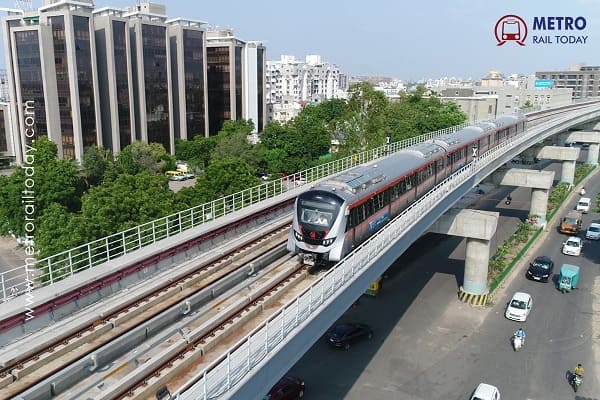 J Kumar Infraprojects completes Final Tunnel Breakthrough for Surat Metro Phase 1 Project
J Kumar Infraprojects completes Final Tunnel Breakthrough for Surat Metro Phase 1 Project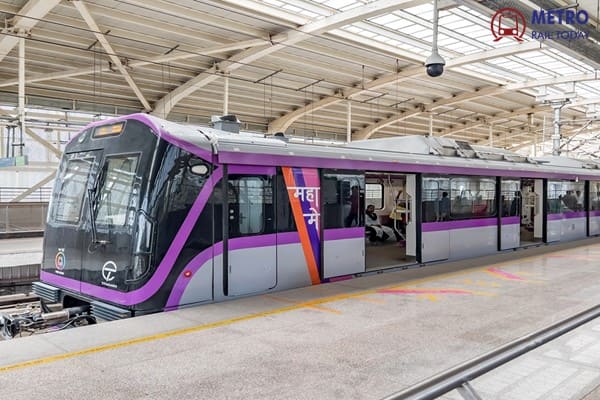 Apurvakriti Infrastructure awarded Ballastless Track Contract for Pune Metro Reach-1 Extension
Apurvakriti Infrastructure awarded Ballastless Track Contract for Pune Metro Reach-1 Extension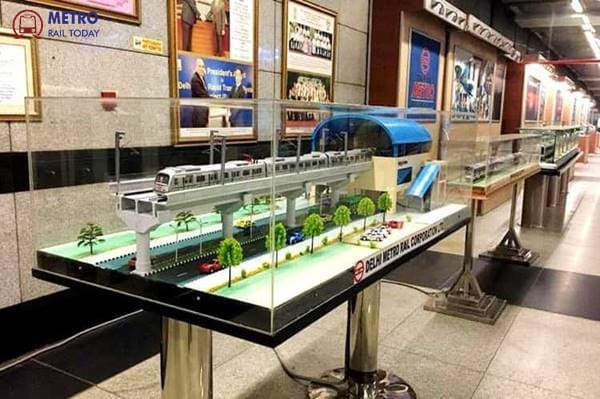 SAM India Builtwell bags first ₹222.76 Crore Civil Contract for Delhi Metro Phase V
SAM India Builtwell bags first ₹222.76 Crore Civil Contract for Delhi Metro Phase V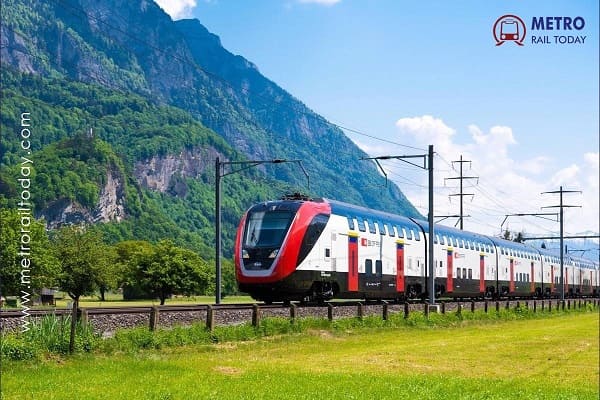 HRIDC conducts Investors Pre-Bid Meeting for Haryana Orbital Rail Corridor
HRIDC conducts Investors Pre-Bid Meeting for Haryana Orbital Rail Corridor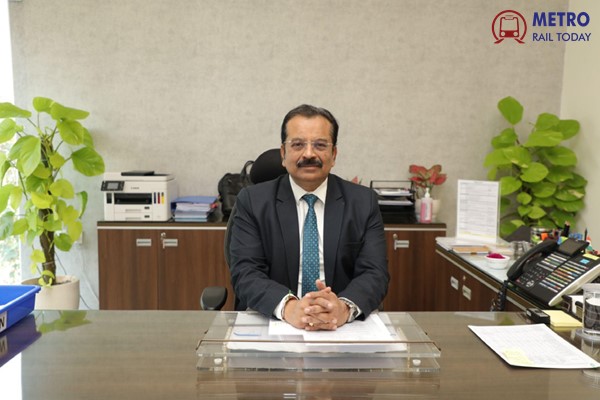 NCRTC Chief Shalabh Goel appointed as General Manager of Central Railway
NCRTC Chief Shalabh Goel appointed as General Manager of Central Railway
New Mumbai Monorail Rake by Medha Servo Drives damaged during System Test
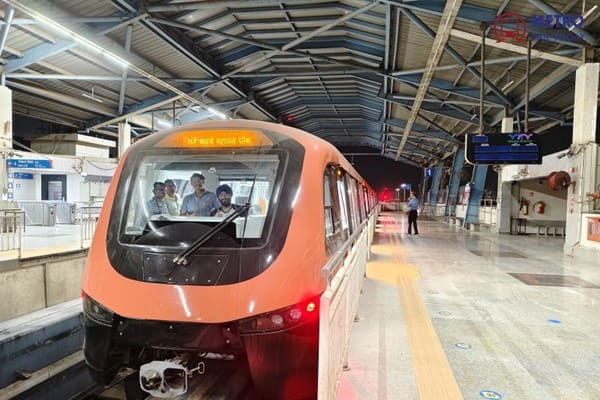
Mumbai, India (Metro Rail Today): In a concerning incident for Mumbai’s urban transport system, a brand-new monorail rake developed by Medha Servo Drives — hailed as a showcase of indigenous innovation and advanced engineering — suffered serious damage during a trial run on the city’s Monorail corridor.
The trial, meant to demonstrate the new train’s technological prowess, has instead raised serious questions about coordination, procedural safety, and testing protocols, prompting calls for accountability and a comprehensive probe.
In an official clarification, the Maha Mumbai Metro Operation Corporation Ltd. (MMMOCL) stated that the incident occurred during ongoing system integration and signaling trials under its technology upgradation program for the Mumbai Monorail network.
“MMMOCL is conducting a series of advanced system trials and tests as part of its ongoing technology upgradation program. These include the testing of the new Communication-Based Train Control (CBTC) signaling technology on the Monorail system, implemented by Medha SMH Rail Pvt. Ltd., the designated contractor,” the agency said.
The statement further clarified that the incident was minor and occurred in a fully protected environment during the simulation of “worst-case” operational scenarios.
“The situation was immediately brought under control, and there were no injuries to any staff or personnel. Such controlled situations are part of standard testing processes designed to ensure complete preparedness before full deployment,” MMMOCL said.
MMMOCL assured that these are internal system trials, not operational failures, and urged citizens not to panic. Regular testing and commissioning activities by Medha SMH Rail Pvt. Ltd. are continuing as scheduled, with safety protocols being reinforced.
A Technological Leap Faces Turbulence
The new Medha-built rake was designed to replace the aging rolling stock of Mumbai’s Monorail, introducing upgraded propulsion, braking, and onboard diagnostics systems. Equipped with CBTC signaling, the train promises improved speed regulation, energy efficiency, and real-time monitoring — crucial features to bring the monorail system in line with international standards.
However, the recent setback underscores the delicate phase of integration testing, where coordination between mechanical, electrical, and signaling systems is critical. Experts believe such incidents, while not uncommon in high-tech transit upgrades, warrant transparent reviews to strengthen safety protocols before commissioning.
Background: Mumbai Monorail’s Struggle for Stability
Commissioned in 2014, the Mumbai Monorail remains India’s only operational monorail system. Despite its potential as an urban mobility solution, the project has been plagued by technical glitches, operational inefficiencies, and low ridership.
MMMOCL’s ongoing modernization program, in partnership with Medha SMH Rail Pvt. Ltd., aims to revive the network by introducing new rakes, modern signaling, and automation technologies — marking a significant step toward sustainable, efficient urban transit.
Commenting on the incident, Mrs. Mamta Shah, MD & CEO of Urban Infra Group, said:
“The incident during the Mumbai Monorail trial highlights the importance of rigorous testing and cross-functional coordination during technology upgrades. While such setbacks are part of the innovation process, the focus must remain on accountability, transparency, and adherence to global safety standards. Medha’s indigenous technology represents a leap forward, and with strengthened oversight, Mumbai’s monorail can still emerge as a benchmark for modern urban mobility.”
The Way Forward
MMMOCL confirmed that an internal technical review has been initiated to assess the root cause of the damage and prevent future occurrences. Meanwhile, system trials under CBTC integration are continuing under controlled conditions.
With the Mumbai Monorail revival project seen as a key element in the city’s multimodal transport framework, experts emphasize that resilience and safety-focused innovation will determine its long-term success.




